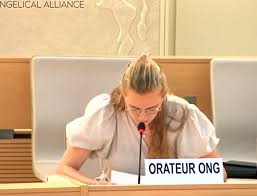Italy: Migrants evicted from Trieste’s Old Port area

Rome: The authorities in Trieste evicted about 200 migrants from the Old Port, where they had been living in precarious conditions. Their situation was similar to that near the former Silos warehouse, a facility close to the train station that had housed hundreds of asylum seekers before its closure in June.
On November 20, around 200 asylum seekers were evicted from Trieste’s Old Port, where construction is underway to redevelop the area. About 180 were transferred to hosting centers after undergoing medical tests and were transported by bus to facilities outside the Friuli Venezia Giulia region. Food and drinks were provided during the operation.
The eviction involved a coordinated effort by 111 security personnel (police, Carabinieri, finance police, and local police), six prefecture officials, UNHCR staff, healthcare workers, firefighters, civil protection officials, and volunteers, including those from Caritas, who distributed meals. The area was cleaned following the operation.
Among those who had found shelter at the Old Port was a man from Bangladesh who had arrived in Trieste to look for work and help his family. He cried when telling officials that his family was very poor.
Meanwhile, two young men from Pakistan were staying in the area and meant to travel to France. They did not have any money so they had been staying in the city for the past couple of months.
Another youth, also a Pakistani national, said he had found shelter and something to eat in Trieste thanks to volunteers but the place was getting increasingly dirty and the situation had become more serious recently. When security officials arrived, the migrants gathered their few belongings in bags.
Many said they hoped to stay in Trieste, although they knew there weren’t enough facilities to host them.
Before cleaning up, officials found tents, sleeping bags, leftover food, drinks, and medicines that reflected the difficult lives of those sleeping rough. The medicines included painkillers and anti-flu pills, while blankets and coats, often donated by volunteers, were used to keep warm.
Friuli Venezia Giulia Governor Massimiliano Fedriga expressed his gratitude to “institutions, the prefecture, and the central police department” for their efforts in the Old Port eviction during a regional council meeting on Wednesday. He emphasized that such interventions “to restore the law are fundamental, not only in a practical sense but also for the message they send.”
He went on to say that “those who think they can arrive and stay illegally on our territory” need to know that “institutions don’t allow it”.
Fedriga also noted that the operation was part of ongoing border controls that have yielded significant results. Additionally, he pointed out that, like the Silos operation, the Old Port eviction included transferring asylum seekers to facilities outside the region.
The operation to clear the Old Port followed a similar one on June 21 to remove migrants from the so-called Silos warehouse, located near the area cleared on Wednesday.
While the migrants have now been relocated to facilities outside the region, the flow of arrivals from the ‘Balkan route’ continues. Many of those reaching Trieste have sought shelter in abandoned buildings, including former port warehouses.





